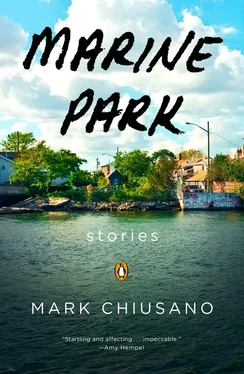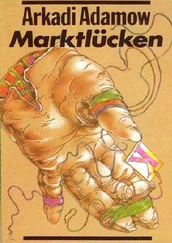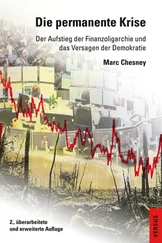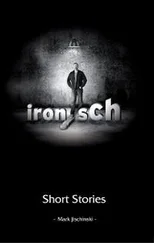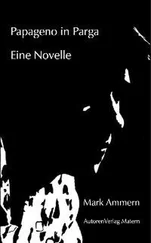This was my favorite moment, using the key, the throat-grumbling the engine makes when it comes on, how if you do it wrong it kick-starts like someone laughing hysterically. Then the way the wheel shakes a little in your hand, your foot on the brake, everything ready to move.
I pulled out and Dad said, Good, good, keep it easy, and I imagined the fake line in the middle of the road like he told me to, keeping a little to the left of it. I hit my right blinker and we were on a one-way street, and my turn came perfectly into the center. I accelerated a little and tried to ease off and onto the break at the red light, completely smooth. I navigated around a double-parked car without my dad saying a word.
When we were little, the only activity that Lorris and I wanted every night was wrestling with Dad. He didn’t like to hit us; Mom was the one we were afraid of, her slaps more damaging than any neighborhood scrape. Scarier too because she’d cry after, holding ice to our cheeks, even though we told her it was OK and we didn’t need the ice. But wrestling was something that Dad knew how to do. He’d lie down in our living room on his back, and one or the other of us would run down the hallway and take a running leap and jump on top of him. Then the other would come from behind his head and try to cover his eyes or hold his legs. When we jumped, he made an oof sound, like we had knocked the air out, but he always caught us, in midair, no matter what part of him we tried to jump on top of. He’d keep us suspended there for a few seconds, turning us back and forth like a steering wheel, and then pull us back down and wrap our arms in a pretzel. Mom liked to watch this from the kitchen, where she’d be cleaning the dishes, usually Dad’s job but she let him off the hook when he was wrestling with us.
Coming down a one-way street like that was the same feeling of being suspended in midair, the windows open, the radio off so I could concentrate, the car on a track, almost, so it felt impossible to deviate. I could close my eyes or shut off the driving part of my brain and the car would keep going forward, where I was willing it to go.
It was the corner, the one with two traffic lights, the one with the old storage warehouse on one side, and the Burger King, where teenagers go after the movies to sky the drink machines and not pay; with the shit factory on the other side, the green fence shaped like a wave on the top that goes on and on forever. There’s a gate in the fence with an entrance to the recycling dump. When Dad saw it, it was like he woke up from being asleep with his eyes open. He leaned forward and said, Make a right here, go into there. We’ve got to pick something up. Then the red Chevy came screaming up from behind us and crunched into the passenger side.
I sat in the driver’s seat. There were doors being opened and slammed shut. I think I heard the sirens immediately. Police cars were never far away. The Chevy driver went right over to Dad’s side and pulled him out and Dad lay on the ground, breathing heavy, on his back, looking up.
I was in the car. I was out of the car. I was sitting on the side of the curb. My dad lay on his back and groaned quietly, talking to himself. There were people all around him. He kept pushing the air in front of him, up and away. My mom got there. My dad was sitting up. She was screaming the whole time. Another fucking air conditioner, she said. Driving with your fucking underage son. You’ve got some fucking lot of nerve. Dad was sitting up and laughing. He was shaking his head, I remember that. He’d just gotten a haircut, and you could see red skin beneath the gray. I remember when Dad came to say good night to us, later, he said, Your mother and I love each other very much. He had his hands on the side of the mattress. Don’t take things so seriously, he said.
It was hot that night, and Lorris was in my room again. Mom pulled out the trundle bed. She smoothed the sheets. She kept her hand on his cheek, her other hand on my arm, her feet between the two beds, until Lorris told her that he wanted to turn on the other side. She went downstairs, and she put the television on, but we could hear her and Dad arguing. They were quiet. We only heard the sounds of their voices. It stopped soon and they turned the television off. Lorris got out of the pullout bed and stood in front of mine. He put his hand on the side, and I lifted up the sheet. I faced one way, and he faced the other, because I didn’t like it when our breaths hit, but he kept his foot next to mine until four in the morning. Then he got up to go to the bathroom, and I had the bed and the sheets and the quiet room to myself.
Sitting on the bus on the way home from Kings Highway train station with our shopping bags at our feet, Lorris pointed at the man sitting across from us. It was the years when we fought. Look, Lorris said. When the man reached down to scratch his lower leg his jeans rode up a little, and you could see his gun, just the holster and the leather strap. He’s a policeman, I told Lorris. Lorris nodded. I feel safe, he said.
• • •
We fought all the time. We threw punches. We kneed each other in the chest. We knocked each other down, waited until the other one got up, knocked him down again. We got angry. We squeezed each other’s fingers so hard they got jammed, or what looked like jammed, in the way that we jammed our fingers while playing basketball. We scratched pimples into our legs and called them mosquito bites.
When fights were over, when Lorris was knocked down, when I had my whole weight on top of him, I gave what was our cruelest punishment of all — the kiss of death — the bone of my chin jammed into his cheek, pushed down between his gums until he screamed, hard enough that they’d stay raw, and the orthodontist, when Lorris went to one a few years later, told Lorris he needed braces. But when I pulled my chin away, he gave me the same look, his eyes disdainful, as if he knew there was nothing else I could do. And, surprised, I’d let him up.
Then we’d lean against the wall together, breathing hard. It stopped us being angry. We could be regular human beings then, so much that by the time our father came running up the stairs, shouting, What’s going on? we’d be laughing, or doing something else, my glasses crooked but back on my face.
• • •
Every year we went shopping at Christmastime, by ourselves, near Kings Highway. There were stores for everything. Rainbow for clothing, KB Toys, a small bookstore, jewelry shops. Once I went by myself but came back ten minutes later than I’d said I would, and my mother had been sitting next to the door, on a dining room chair. My father was pacing the room. Lorris was watching out the window, and it was him who opened the door.
You’re fucked, he said, quietly, happily, the emphasis too much on the second word. With his body blocking my parents’ view, he punched me above the knee, and backed quickly away, so I had to hobble into the house. From then on Lorris and I went together, even though it wasn’t clear what good Lorris would do. Two’s better than one, our father said, and left it at that.
One winter, not long after that — on our first stop we got clothes. A turtleneck for our mother, who was trying to start running even with the snow, and a sweatshirt for our father, because he said he looked good in them. Then we went to the bookstore under the train tracks.
Morning, we said, as we entered the shop. The bell had rung over our heads. The man grunted. Good morning, Lorris said, stamping on the welcome mat in front of the door, with pictures of snowflakes on its edges. The man looked up but didn’t grunt. We spread out around the store, opening books and looking at their inside covers. Here, Lorris said, and handed me a small red one: Walking Tours of Brooklyn . Perfect, I said. One more. Mister, I said, do you have any suggestions for a gift for our father.
Читать дальше
